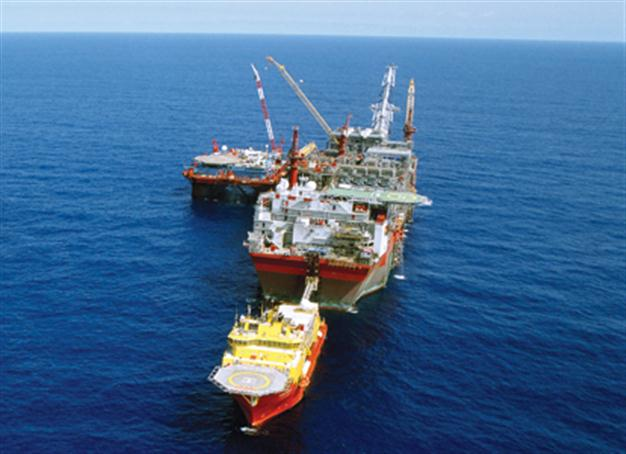Turkey, Shell to sign Med oil drilling deal
ISTANBUL – Hürriyet Daily News

This company photo shows an oil and gas exploration platform owned by energy giant Shell off the coast of Nigeria. Company photo
Turkey is set to revisit the problematic issue of oil exploration in the eastern Mediterranean following a deal to search for reserves off Antalya with ShellTurkey’s state-run oil company is close to inking a deal for both onshore and offshore exploration with Dutch energy giant Shell next week, according to the country’s energy minister.
“TPAO [Turkish Petroleum Corporation] and Shell will undersign a joint operation agreement on Nov. 23 that covers exploration in the maritime areas of [the southern province of] Antalya,” Minister Taner Yıldız told the Hürriyet Daily News yesterday.
“This will be an important opening in the Mediterranean. We are moving our strategic weight from the BlackSea to the Mediterranean Sea,” Yıldız said during a phone interview.
Shell will undertake the costs of the search, the minister said.
The move comes in the wake of disputes between Greek Cyprus and Turkey over exploration rights on seas surrounding the divided island.
In December 2010, Greek Cyprus and Israel signed an agreement defining their maritime border that allows the neighbors to forge ahead in the search for energy sources in the eastern Mediterranean. After Greek Cyprus began exploration off its southeastern shore earlier this fall, Turkey responded in kind, conducting its own seismic studies on potential oil and gas reserves off the coast of the divided island.
Turkey has said the Greek Cypriot search violates the rights of Turkish Cypriots.
Noble Energy, a U.S.-based energy firm which carried out the Greek Cypriot exploration, declared on Nov. 15 that exploratory drilling off the coast of the Island could yield between 3 trillion and 9 trillion cubic feet of natural gas.
Shell will initially undertake TPAO’s current operation and finalize it within two years, according to the minister. “In accordance with the seismic data, we plan to begin three years of drilling by the start of 2014,” he said.
“Of course it is not possible to tell if oil will be found with such exploration activities, but if the seismic and drilling activities are completed on time and we find oil off Antalya, we will be able to start production by the beginning of 2017,” Yıldız said.
The minister, however, did not specify where the joint exploration would be carried out.
The ministry is avoiding past practices in which it made promising statements about finding oil in the Black Sea, the minister said. “But today, Turkey has a stronger national oil company that can enter partnerships with giant firms. Hopefully, we will witness TPAO conducting searches with its own ship.”
No exploration with Syria
Meanwhile, Turkey has canceled plans to explore for oil in Syria while also threatening to cut off electricity to the Arab republic after a spate of attacks by supporters of Syrian President Bashar al-Assad on Ankara’s diplomatic missions, according to the Associated Press.
Yıldız said Nov. 15 that Turkey had shelved plans for TPAO to jointly explore for oil with Syria’s state oil company in six wells.
“Right now, we are providing electricity [to Syria],” Yıldız said. “If [Syria] continues on this course, then we might have to reconsider these decisions.”
A Turkish Energy Ministry official, speaking on condition of anonymity in line with ministry regulations, told the Associated Press that Turkish companies provided Syria with an average of 2 billion kilowatt hours of electricity per year, which is around 10 percent of Syria’s annual power consumption. According to figures from Turkey’s official statistics agency, the average person in Turkey consumes 540 kW of electricity in one year.
Turkish Energy analyst Necdet Pamir said Syria produced an excess of 10 billion kilowatt hours and was therefore not likely to suffer from any possible Turkish move.
“The cut may affect some parts of Syria for a short period of time, but it does not amount to a huge loss,” Pamir said
















